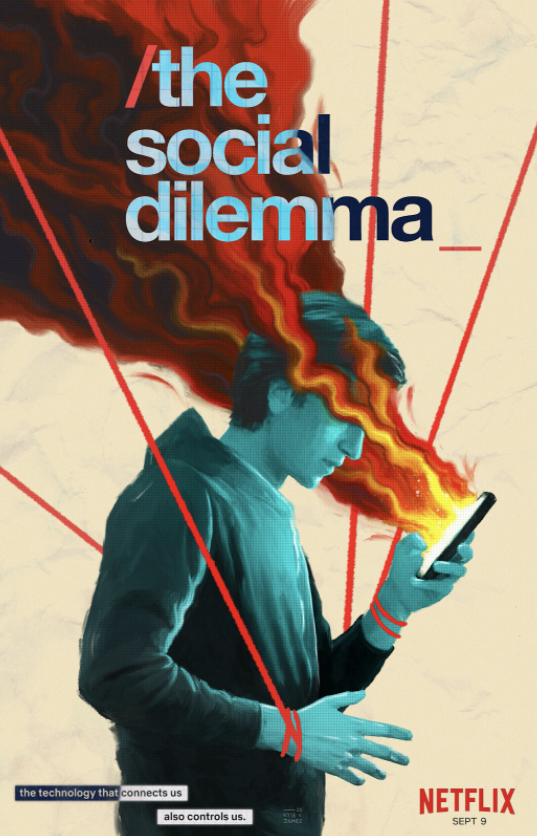
This week in class we watched the Social Dilemma, which was about social media and the negative effects it has had on our society. The documentary consisted of various ex-upper level Silicon Valley engineers and executives of social media companies giving their perspectives on the harms of social media.
The protagonist was one of these executives Tristan Harris, and all the other ones that spoke about the harms of social media. Their goals were to inform the audience about how social media does more harm than good, and how it affects our lives more than we realize. Specifically, they emphasized how these social media companies gather information on us as users and sells that information to businesses so they can know how to best place ads while we are using their apps. This leads to them trying to keep us on their apps as long as possible, so they can maximize the amount of ads. A major consequence of this is that these companies don't really care by what means they use to keep their users engaged, and they won't hesitate to use hate speech and dangerous conspiracy theories to spread on their platforms as long as it keeps people on their apps.
The doc used multiple techniques to portray these messages, like using fictional scenarios as examples that make what the experts were talking about seem more real. One example of this is how the boy joins the extremist rally, and the "behind the scenes" of the apps with the three guys controlling what the boy sees on his phone extremely powerful. I think these worked because they made what the experts talking about seem more understandable, because its easy for their words to go over your head like in other documentaries but these scenarios really helped with that, which I think sets this doc apart.
As for cinematography, I think to the scene with the girl as she was feeling self conscious about her post, and I thin that the angle of the camera on her face really showed showed how bad social media can be for our mental health in that scene.
I thought this film was extremely culturally relevant, because today I was scrolling through Tik Tok when I came across an ad about an app that helps premeds practice for the mcat. It was only until I was watching the documentary that I realized that what they were talking about just applied to my life today, because I ended up downloading that app. It's crazy that the app knew that I'm a premed that is driven to do well academically, and that the app knew that and sent me an ad that would apply to me, and what's even crazier was that it worked because I downloaded the app.
As for how I think my social media usage will change is I'll limit to using it an hour a day, which would be a drastic change for me since my average screen time is 5 hours. But in all honesty I think I will still continue to use it as it hasn't really negatively effected me too much as I think I'm pretty responsible with how I use it.
An additional point I would like to make is that now that AI has made recent breakthroughs, specifically one called chatGPT where you can literally have it write essays for you, would it have a similar effect that social media does now. Of course, if used responsibly AI can be a great tool for the future, but that's what the people behind social media in this documentary thought too. I fear that as AI continues to become better and more powerful, it can also do more harm as social media has started to do.
Hi Haroon, I really like the scene with the girl feeling self-conscious after posting a picture too. The way her facial expression changes immediately after one bad comment shows that the negative things have much more of an effect on us than the positives. I also think I'm going to try and limit my social media usage because there are very few positives to being on it a lot.
ReplyDelete